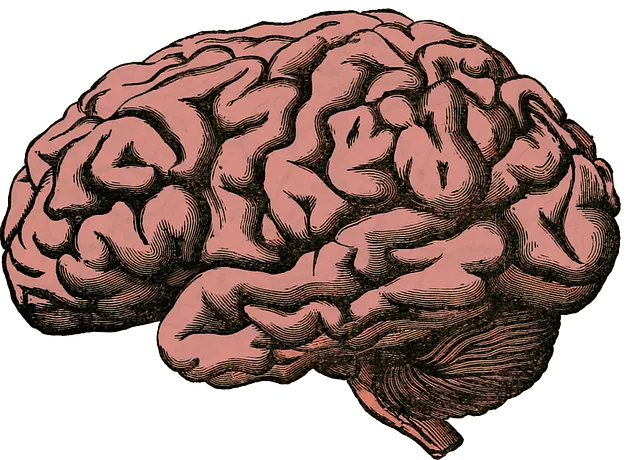The Golden Kaiser Permanente Mental Health Center emphasizes emotion regulation as a cornerstone of emotional resilience, offering tailored tools and programs like Community Outreach and Mental Wellness Journaling. Through self-awareness, emotional intelligence, and balanced self-care routines, patients learn to manage their emotions effectively both within and outside visiting hours. Their structured approach includes individual needs assessment, simple language for complex concepts, personal demonstrations, cultural competency, and communication strategies, ensuring healthy emotion regulation. Regular practice of these techniques can decrease stress, anxiety, depression symptoms, improve relationships, enhance stress management, prevent burnout, and aid conflict resolution, ultimately achieving long-term psychological stability during visiting hours at the Golden Kaiser Permanente Mental Health Center.
Emotion regulation techniques are essential tools for navigating life’s challenges. At the Golden Kaiser Permanente Mental Health Center, we’ve unlocked emotional resilience through innovative programs. This article delves into three key aspects: understanding emotion regulation, teaching effective strategies, and exploring the profound impact and benefits of regular practice. Discover how these techniques, honed at the Golden Kaiser Permanente mental health center visiting hours, can enhance your well-being.
- Understanding Emotion Regulation: Unlocking Emotional Resilience at Golden Kaiser Permanente Mental Health Center
- Teaching Effective Strategies: A Step-by-Step Guide for Facilitators
- The Impact and Benefits: Enhancing Well-being Through Regular Practice
Understanding Emotion Regulation: Unlocking Emotional Resilience at Golden Kaiser Permanente Mental Health Center

At Golden Kaiser Permanente Mental Health Center, understanding emotion regulation is recognized as a cornerstone of emotional resilience. The center offers a comprehensive approach to teaching individuals how to manage and navigate their emotions effectively. This involves equipping them with practical tools and techniques tailored to their unique needs and circumstances. By fostering self-awareness and emotional intelligence, patients at Golden Kaiser Permanente Mental Health Center are empowered to unlock their inherent emotional strength.
Through innovative programs like the Community Outreach Program and guided Mental Wellness Journaling Exercises, the center goes beyond traditional therapy sessions. It encourages a holistic Self-Care Routine Development approach, addressing not just the mind but also the body and spirit. These initiatives ensure that patients leave with a deeper understanding of their emotions and the means to maintain mental wellness both inside and outside the clinic’s visiting hours.
Teaching Effective Strategies: A Step-by-Step Guide for Facilitators

Teaching effective emotion regulation techniques requires a structured approach, especially for facilitators aiming to empower individuals at the Golden Kaiser Permanente mental health center or similar institutions. Here’s a step-by-step guide:
1. Assess Individual Needs: Begin by understanding each learner’s unique emotional landscape. This involves gathering information about their current coping mechanisms, triggers, and specific emotions they struggle with. Tailoring instruction to individual needs ensures relevance and engagement.
2. Introduce Core Concepts: Facilitators should start by explaining the fundamentals of emotional regulation. Teach concepts like emotional awareness, understanding triggers, and healthy expression. Using simple language and relatable examples makes complex ideas accessible.
3. Demonstrate Techniques: Provide a toolkit of strategies, such as deep breathing exercises, mindfulness practices, or cognitive reframing. Demonstrate these techniques personally to give learners a tangible example. Visual aids or role-playing scenarios can further enhance understanding and comprehension.
4. Encourage Practice: Facilitate hands-on learning by encouraging learners to practice the techniques in a safe environment. Offer individual guidance and provide opportunities for peer support, fostering a collaborative atmosphere that promotes open communication.
5. Integrate Cultural Competency: In a diverse setting like Kaiser Permanente, cultural sensitivity is paramount. Train facilitators to be aware of potential cultural barriers and adapt their teaching accordingly. Understanding healthcare provider cultural competency ensures inclusive learning experiences.
6. Promote Communication Strategies: Effective emotional regulation often hinges on open communication. Teach learners how to express their feelings assertively without being aggressive. Role-playing can help them practice these skills, enhancing their ability to navigate interpersonal interactions healthily.
The Impact and Benefits: Enhancing Well-being Through Regular Practice

Emotion regulation techniques offer a powerful tool for enhancing well-being and mental resilience. Regular practice can significantly reduce symptoms associated with stress, anxiety, and depression, as supported by various studies conducted at renowned centers like the Golden Kaiser Permanente mental health center visiting hours. These techniques not only help individuals manage their emotions in the moment but also foster long-term psychological stability.
By integrating emotion regulation into daily routines, folks can improve their ability to cope with challenging situations, enhance self-awareness, and promote positive relationships. Moreover, consistent practice contributes to better stress management, burnout prevention, and even conflict resolution techniques. As previously mentioned, a comprehensive risk assessment for mental health professionals should consider these benefits, highlighting the importance of emotion regulation in maintaining optimal well-being both personally and professionally.
Emotion regulation techniques, as taught at the Golden Kaiser Permanente Mental Health Center, offer a powerful tool for enhancing well-being. By understanding emotional responses and implementing effective strategies, individuals can unlock resilience and navigate life’s challenges with greater ease. The step-by-step guide provided offers a practical framework for facilitators to teach these skills, ultimately fostering healthier minds and richer lives. For those interested in exploring this further, visiting the Golden Kaiser Permanente Mental Health Center during their operating hours can provide valuable insights and access to these transformative resources.






